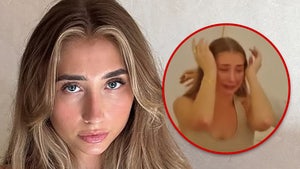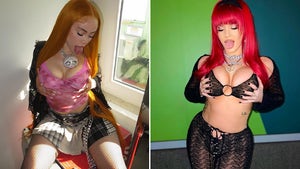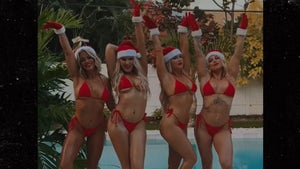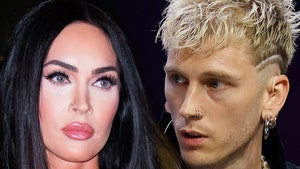Jurors Begin Deliberating in Richard Hatch Trial
"Survivor" Richard Hatch, who swayed his fellow contestants to award him a $1 million prize during the hit show's first season, is now facing a different sort of deliberations.
On Tuesday, the jurors in Hatch's federal tax fraud trial began weighing whether Hatch willfully failed to pay taxes on that prize money.
Hatch is charged with 10 counts, including bank, mail and wire fraud and tax evasion, and faces a maximum 73 years in prison and millions of dollars in fines if convicted of all of them. He is also accused of failing to pay taxes on hundreds of thousands of dollars of other income, and of using donations meant for a now-defunct charity on personal expenses.
Jurors concluded the day without a verdict after deliberating for a few hours, and were scheduled to resume Wednesday morning.
During closing arguments earlier Tuesday, Hatch's attorney said his client was simply a bumbling bookkeeper who was not qualified to handle so much money.
But Assistant U.S. Attorney Andrew Reich told jurors that Hatch didn't pay taxes on the $1 million he won because he was greedy. He said Hatch filed a tax return that omitted the winnings, despite promising his accountant that he wouldn't.
"There's only one reason he filed the return, and it's greed," Reich said. "He didn't want to pay the money he owed."
Hatch's attorney, Michael Minns, said he received poor advice from the accountants and lawyers who helped him prepare his tax return.
"I guarantee you there is no one in this courthouse who knows the entire tax code. It's an impossibility. All you do is the best you can," Minns told jurors.
Earlier in the trial, Minns argued the reality TV star believed producers or advertisers may have paid the taxes on his prize.
During a break in testimony Friday, he alleged Hatch cut a deal with producers during the taping of the show: They would pay the taxes on Hatch's prize after he caught other contestants eating smuggled food. But the reality TV star never testified about the allegations in front of the jury. CBS and the show's producer, Mark Burnett, declined to comment on the allegation.
Reich told jurors that Hatch solicited donations for Horizon Bound, a nonprofit charity he founded, then used the money to tip his limousine driver, repair a piano and fund $16,000 in repairs to homes he owned in Middletown and Newport.
Another of Hatch's attorneys, John MacDonald, said Tuesday that Hatch had no need to steal money from anyone. From 2000 to 2002, Hatch earned more than $1.5 million. MacDonald said Hatch was reimbursing himself for thousands of dollars he spent out of his own pocket on the charity, which he said was legal.
"He was wrong to do that," MacDonald said. "That doesn't mean he committed a crime."




